Table of Contents
ToggleThe 9th Amendment to the United States Constitution contains 20 words and 121 characters. It is composed of 1 sentence.
Full Text of the 9th Amendment to the US Constitution
The enumeration in the Constitution, of certain rights, shall not be construed to deny or disparage others retained by the people.
What Is the 9th Amendment?
When the Bill of Rights was added to the United States Constitution following ratification on December 15, 1791, the Ninth Amendment clause was included.
How Can the 9th Amendment Be Summarized?
The Ninth Amendment of the United States Constitution states that the federal government doesn’t own the rights that are not listed in the Constitution, instead, they belong to the people.
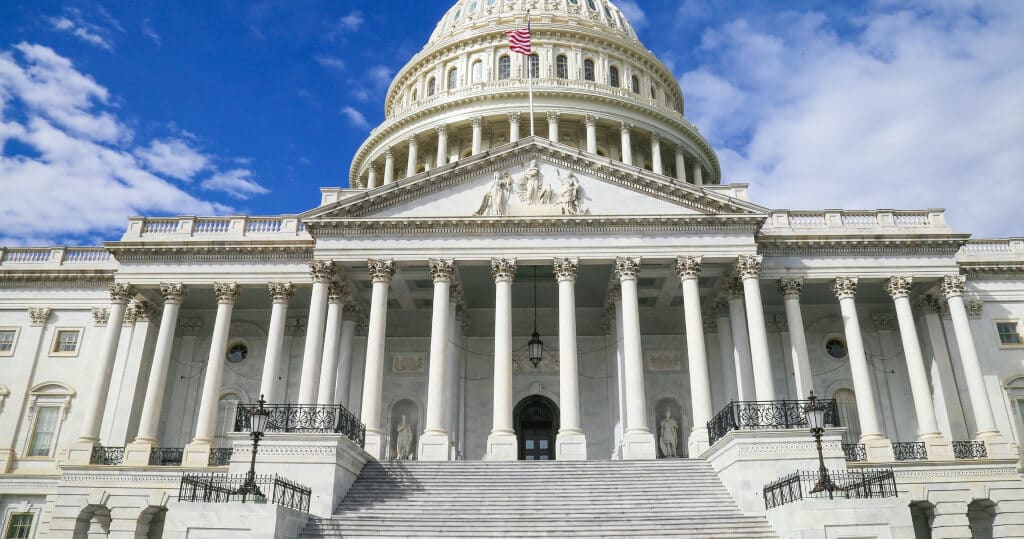
This means the rights that are specified in the Constitution are not the only ones the people can claim.
According to the clause, the government shouldn’t disparage the other natural rights of citizens. That is the general issue included in the Ninth Amendment.
These rights can consist of the right to plant flowers, paint your toenails, and eat what you want, among many others. All these are rights not denied to people just because they aren’t in the Constitution.

Get Smarter on US News, History, and the Constitution
Join the thousands of fellow patriots who rely on our 5-minute newsletter to stay informed on the key events and trends that shaped our nation's past and continue to shape its present.
Why Was the 9th Amendment Added to the Constitution?
There was a great debate on whether people’s rights were being protected before the Constitution was ratified.

The Anti-Federalists insisted that the Bill of Rights be included in the United States Constitution. They feared that an unchecked powerful federal government would inevitably become tyrannical in nature and oppress the people.
Founding Father James Madison listened to these concerns, and the Ninth Amendment was subsequently included in the Constitution.
However, an essential portion of the original draft that James Madison created was removed by a select committee. It sought to prohibit the federal government from expanding its power even further using interpretation.

This, in turn, made the whole application of the amendment and the purpose it was supposed to serve irrelevant. The intention was for it to be used as the Constitution’s mode of interpretation.
It was supposed to give people the confidence that federal courts wouldn’t create any new government powers through interpretation.
Opposition to the Bill of Rights From Federalists
The Federalists, on the other hand, believed that the Bill of Rights limited the federal government. They argued that individuals’ liberties would possibly turn out to be detrimental if protected rights were enumerated.

The Constitution would also make other liberties lack the protection of their constitutional rights.
The Ninth Amendment was developed to ensure that enumerated rights in the Constitution do not deny any other unenumerated right. When it was first passed, it wasn’t clear what the rights of the amendment were.
Alexander Hamilton and the 9th Amendment
Interestingly, one of the Founding Fathers, Alexander Hamilton, was against the inclusion of the 9th Amendment in the Bill of Rights.
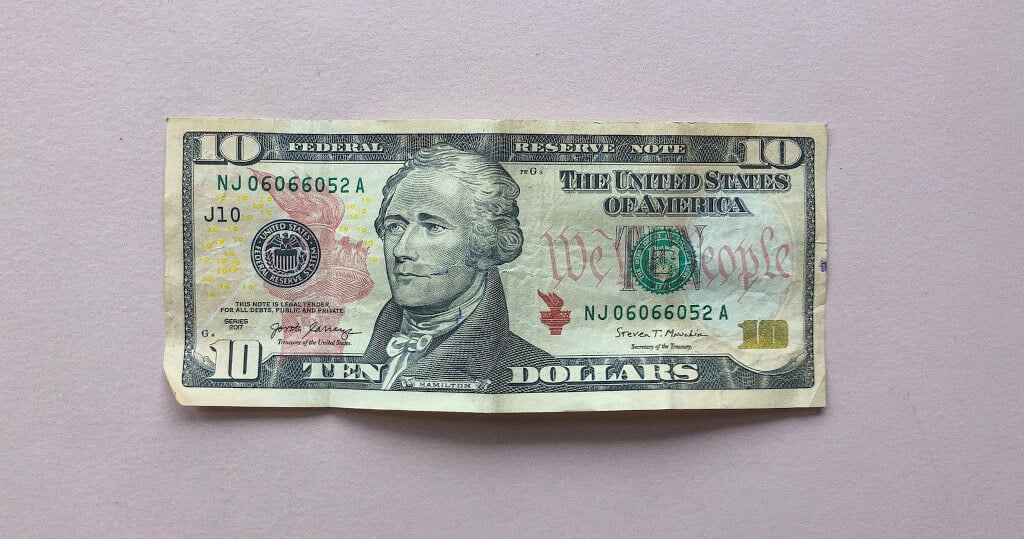
He argued that protecting unnamed rights implied that the government had the power over these rights if it weren’t for the 9th Amendment.
What Does the 9th Amendment Mean Today?
The Ninth Amendment wasn’t mentioned frequently until the mid-1960s since the United States Supreme Court didn’t primarily depend on it.

In fact, the Supreme Court was slightly bemused by the constitutional amendment as there was a strong disagreement about what it could be referring to.
This has happened frequently since the Bill of Rights was enacted and has impacted the Ninth Amendment greatly. It hasn’t been referenced often as a primary source of liberty.
However, it has been crucial in the broadening of people’s constitutional right to privacy.
What Best Explains the Purpose of the Ninth Amendment?
Generally, the Supreme Court tries not to introduce a reference to the 9th Amendment if possible, as its interpretation is so challenging.
However, this is changing as new technology emerges, such as the internet, where many aspects may have to be regulated by the 9th Amendment.
Why Is the 9th Amendment Important?
Many interpretations have emerged, all trying to interpret the Ninth Amendment of the Constitution and its meaning. Some scholars claim that it is affirmative protection of the rights that aren’t included in the Bill of Rights.

Others think that it’s just there to state a platitude. Many people have not paid much attention to the clause at all.
When Did Ratification of the 9th Amendment Take Place?
Amendment IX was ratified on December 15th, 1791, as part of the Bill of Rights, which consisted of the first 10 amendments to the United States Constitution.
Before ratification, there was much discussion in Congress over the suggested text and whether it should be ratified at all. It is sometimes referred to as the Federalists’ Amendment.
Explore the 27 Constitutional Amendments
- 1st Amendment
- 2nd Amendment
- 3rd Amendment
- 4th Amendment
- 5th Amendment
- 6th Amendment
- 7th Amendment
- 8th Amendment
- 9th Amendment
- 10th Amendment
- 11th Amendment
- 12th Amendment
- 13th Amendment
- 14th Amendment
- 15th Amendment
- 16th Amendment
- 17th Amendment
- 18th Amendment
- 19th Amendment
- 20th Amendment
- 21st Amendment
- 22nd Amendment
- 23rd Amendment
- 24th Amendment
- 25th Amendment
- 26th Amendment
- 27th Amendment
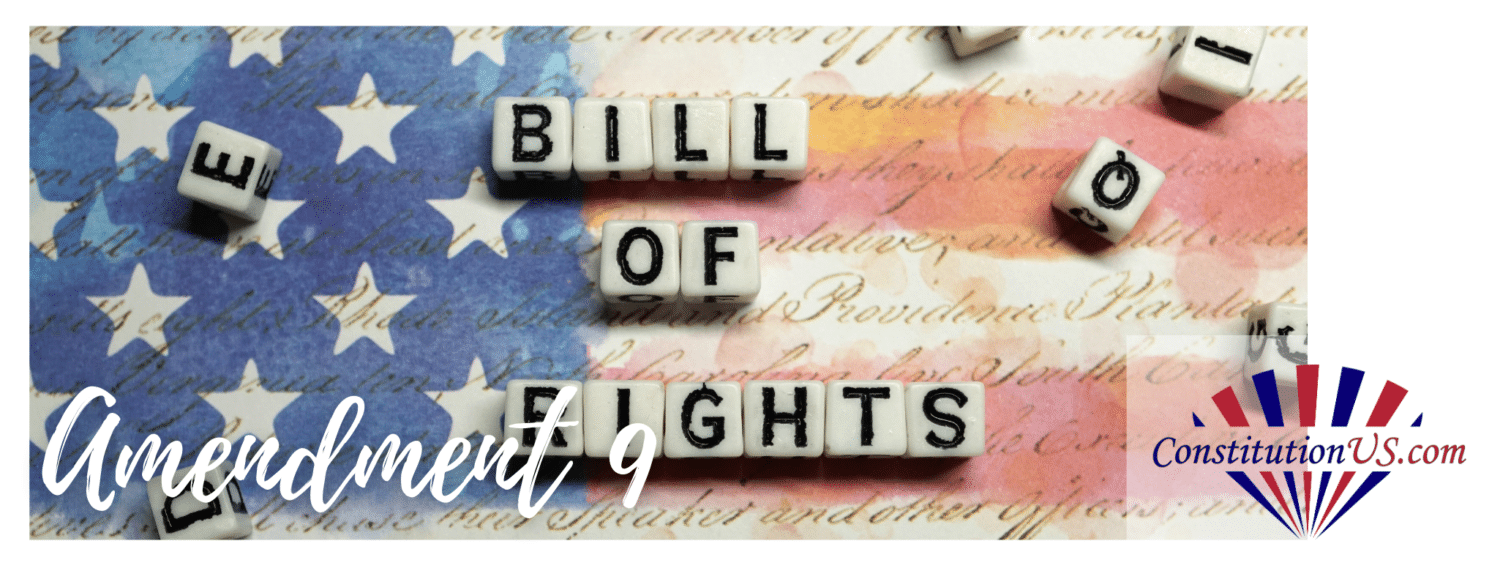

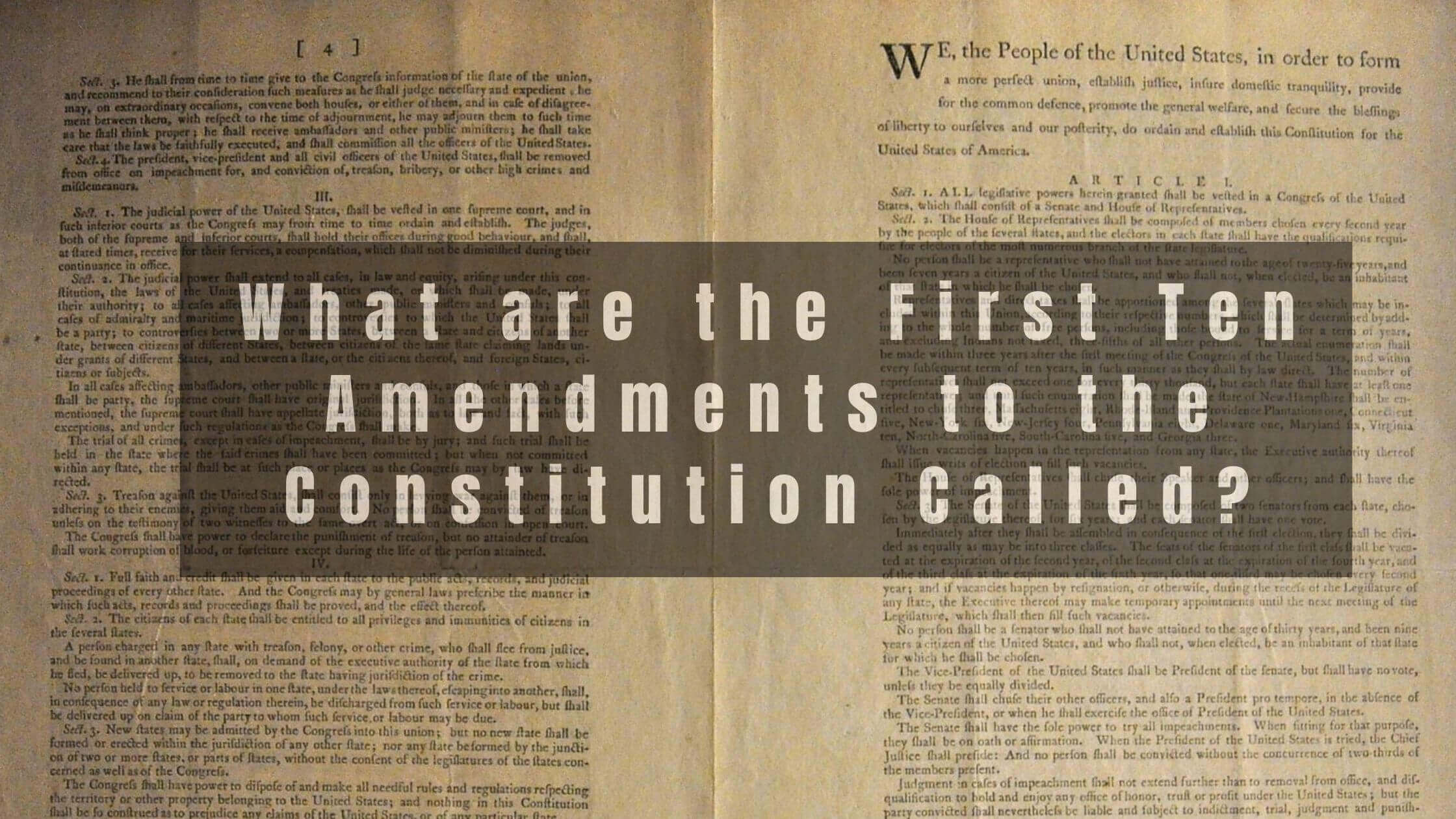
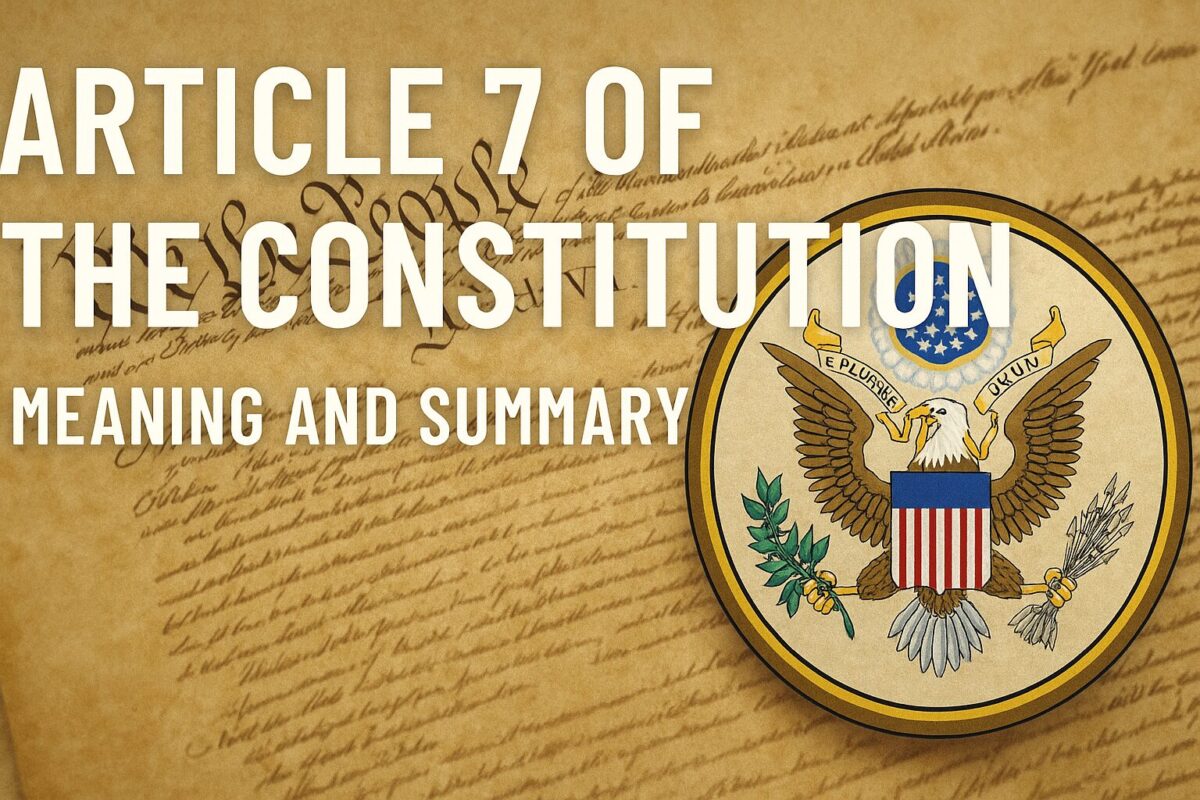








42 Responses
Can County Governments impose regulations that differ between city and rural property in the same county thus restricting simple things like the right to having a garage?
All depending on Zoning Regulations in that county.
should the 9th amendment uphold my right NOT to be vaccinated for covid.
How is this vacation right? What about thr right for the public to be free of disease? Especially if you were infected then walk into a crowd knowing you are infected, therefore putting all others health in jeopardy? Just curious.
That’s a false dichotomy. Look at how we react to AIDS today – in California it is not illegal to consciously spread HIV. States should regulate as their citizens demand. Feds aren’t in the picture…
This is not true. Knowingly exposing someone to a communicable disease is a misdemeanor, carrying a 6-month prison term in California. It used to be a felony, but then Governor Jerry Brown signed Senate Bill 239 into law in October 2017, which made HIV the same as other communicable diseases in this respect.
My idea of the IX amendment simplified:
For many, splitting wood was and still is a chore of necessity. Those whom chop wood start at an early age and continue into their old age.
Over these years one becomes very apt at using an Axe.
We can assume at some point others may see the Axe as a very dangerous weapon, for whatever reason.
This “Axe Threat”, can then be used as a political football to ban the use of the Axe.
The IX amendment is at play here, the person chopping the wood surely is not in any danger as the wood gets cut through the years with minimal incidents.
Therefore the axe chopper is protected because this basic human right to stay warm to live, can not be taken away.
The idea that perception of any one process or action can be viewed differently in the future and does not mean the axe chopper should be forced to give up their axe.
The Supreme Court has effectively nullified the 9th amendment when they overturned Roe v Wade
Keith, no one can legislate stupidity. If a sick person walks among us, which happens all the time, the Federal government cannot prevent that by mandating a cure or vaccine. Personal responsibility has to be included in the equation.
There is no right to be free of disease. Disease is a natural occurrence that cannot be controlled by government.
No because the Pandemic falls under the Public Health Safety clauses under several Articles in the Constitution.
Is this 9th Amendment being used by pro abortion protesters to say that abortion is a woman’s “constitutional right”? Or is this a valid specific reason they are saying this?
She had the right of privacy.
Pro-choice does NOT mean “pro-abortion”. I’m pro-choice but I would never support aborting my child.
And yes, the Ninth Amendment is a valid, specific reason abortion should remain legal.
Well stated answer.
In various personal discussions with friends I’ve tried to convey that very simple approach and reasoning (pro-choice / pro-abortion is not the same) but I didn’t have the right words to be persuasive.
Regardless of why your comment impacted me, I appreciate seeing your clear and simple words, and wanted to tell you that they made a difference to at least one person.
When human beings come to the realization that killing an “in the womb” human being is murder, then people using the 9th Amendment to justify killing the unborn will have to face the real consequences of their compulsive blood lust to end an innocent human life.
Pro choice is not “pro abortion”
Falls under the right of privacy. Also can be argued it is a Civil Liberty that a person can be the judge of their body under certain limitations (the Justices came up with the Trimester test for the limitations) which has been accepted as an unenumerated right. It doesn’t affect the public and it’s nobody’s business except for the parties involved! The SCOTUS is going to state that Roe V Wade doesn’t meet the test for the 14th Amendment which was used along with the 9th and some other Amendments. They assume nobody knows or understands the 9th as it isn’t referenced that often, so everyone thinks it was only the 14th that was used as the assent for the case.
The ninth ammendment was used as the concurring opinion basis in Roe v Wade. It actually is a stronger basis than the majority opinion which relied on the 14th ammendment. The weakness is that it prohibits only the Federal government, and not state or local regulation.
no, the 9th does not give right to abortion, it only gives you the right to do what you want with YOUR body. as soon as you start talking about another person’s body, the 9th no longer applies (also true of right to privacy).
the only real question is whether an unborn baby is a person or not.
Excellent point. That is a conflict the government is not likely (or qualified) to resolve and leads back to an individuals existential beliefs regarding the nature of life.
Enter the 1st amendment.
The 14th A makes it clear only BORN are protected. So no, it does not apply to fetuses.
Actually, that is NOT correct. The Supreme Court made it quite clear it was respecting TWO different “INTERESTS” in deciding ROE. The first is the one proponents most identify with — an expectant mother’s “privacy” right in choosing health care options and treatment in concert with her physician. The second rarely gets equal time. That is the state’s “LEGITIMATE INTEREST” (expressed in those terms because states cannot claim “rights,” particularly “privacy rights) in protecting the life of the unborn. In so doing, neither the states NOR THE COURTS (according to SCOTUS), are required to define the unborn as a “person” who therefore enjoys “rights” based on physiological criteria (i.e. heartbeat, neurological activity, etc.). Instead, a state has a legitimate interest in protecting fetal life irrespective of any definition of personhood. Unfortunately, SCOTUS did not establish a definitive time frame whereupon a state’s legitimate interest in protecting fetal life occurred, and the legal battle continued to transpire for the next 50 years until such time as the most recent Dobbs case gave that question BACK to each state to resolve on its own. But, no, state’s do not have to agree on whether an unborn fetus is or is not a person or on what time frame fetal life is protected or an expectant mother’s “right” to an abortion is recognized. Each state now resolves those questions for itself.
It does state that all rights not mentioned in the constitution go to the people and abortion isn’t mentioned in the constitution. However abortion is the natural born right of every woman. The government at any level shouldn’t be able to control human reproduction.
You don’t need 3rd parties. Do you really think women haven’t used plants and herbs for abortions since the dawn of time? Literally why men shouldn’t be making decisions in issues they know nothing about. Using your logic NO medical treatments or meds should be used for anything- its unnatural.
It was used by the 5 Republican and 2 Democrat appointed Justices in the 1972 Roe v Wade decision.
I think that the reason they don’t like mentioning the 9th Amendment is because they don’t like being prohibited from forcing rules on WE the People.. So they hope we overlook the 9th Amendment…
Would voting rights be included in the 9th Amendment?
Yes. Voting is not officially expressed in the Constitution thus is an unenumerated right as documents from the Founders referred that the people are meant to vote. The 9th doesn’t specify that limitations to these unenumerated rights are unconstitutional though. Voting laws are under the jurisdiction of the States, however limitations can and have been found unconstitutional under the US Constitution as that supersedes State laws. From what I have read about the 9th, other Amendments need to be applied along with the 9th as really the Courts don’t want to have to interpret what these unenumerated rights are. Previous SCOTUS cases have included voting, privacy, and Civil Liberties fall under the 9th. Too bad it doesn’t keep Courts from removing parts of the Voting Act. SMH.
The founding fathers were NOT “originalists”. Proof is that they said that a right should NOT be denied by claiming it was not named within. They were trashing their “original” plan, Articles of Confederation, after @decade. So, they were extreme revisionists already.
WHY IS IT THAT DURING ANY PUBLIC FORUM, REPUBLICANS FEEL THE NEED TO SPEW AMENDMENTS UNDER THE CONSTITUTION, WHEN IN FACT THEY, ALONG WITH FORMER PRESIDENT 45, SO OFTEN, TRAMPLED SO MANY AMENDMENTS AND BILL OF RIGHTS?
Where on the constitutional amendments that a sheriff can hire and pay a convicted felon to buy a gun. Caused a serious crime.
Congress should ratified the 9th Amendment to include women and abortions in it, women have rights too. Also it need to include LGBTQ for men and women.
Is it LEGAL for GREENWOOD COUNTY government employee to be FIRED over THEIR private social media which is not THREAT violence and is OPINION of political issues and personal comments. Also was told it was offensive but I was singled out hundred employees to censor?
The 9th amendment should be relied on to prevent the overturn of Roe v Wade. If RvW is overturned, the 9th should be argued in each state that all women have the right to control their own body.
why isnt the 9th amendment used to validate privacy including the rights os a women over her repro rights?
Fact.
Every person should have the right to decide what happens to their own body.
There is no conational right to abortion under any circumstances. Only God gives life and only God takes life. (exception is the state can carry out executions for murder) God is the ultimate authority. God calls it murder period. Even to save a mothers life. There are no exceptions to abortion period. You can agree with God or disagree if you want to. That does not change the FACT that he( God) is and will always be the ultimate authority.
Exodus 21:22-23
If a man strive, and hurt a woman with child, so that her fruit depart from her and yet no mischief
follow: he shall be surely be punished according as the woman’s husband will lay upon him; and he shall pay as the judges determine. And if mischief follow, then he shall give life for life.
I don’t see any exceptions for anyone to have a right to abort, not even to save the mother’s life. It is the will of a sovereign God to be done what ever that will might be. God is the creator of all things in the entire universe. He owns everything, therefore God and only God makes the rules. Anyone that has an abortion or performs an abortion will stand before a Holy God for murder in the worst degree.
The right to keep the records of their belongs to themselves , and not to be sold in name or likeness for profits.
And a gaureentee no one will tax the food they eat.
WRONG!
Right to privacy does not grant ANYONE to right to then violate the rights of UNBORN PERSONS to LIFE!
All laws under our Republic forbid premeditated murder.
Irresponsibility can NOT be resolved by murdering another!
Evil is what evil does – plain and simple!
The 9th amendment is based. It’s probably my fav after 2nd and 1st respectively…
It’s basically saying. “Use common sense douchebags, if someone wants to dance on their lawn or pray to the sky mantis on their own property that’s okay. EVEN if it’s not listed in the bill of rights”. It’s amazing they even have to write it, but I guess the British were so tyrannical they couldn’t fathom this simple concept…
It flipped on it’s head this European monarchist idea that everything is banned unless we ALLOW it. Instead the 9th amendment implies that unless something is harmful, it should be a basic human right for free people. Owned by the people.
Bayzed founding fathers.
Ofc the modern supreme court doesn’t get it… along with anyone who insists it’s a platitude
*Lol @ the people trying to argue the 9th protects abortion. It obv doesn’t.. That’s an even worse argument then privacy.. and privacy got struck down. Keep trying to think of a way to justify murder. GL with that.